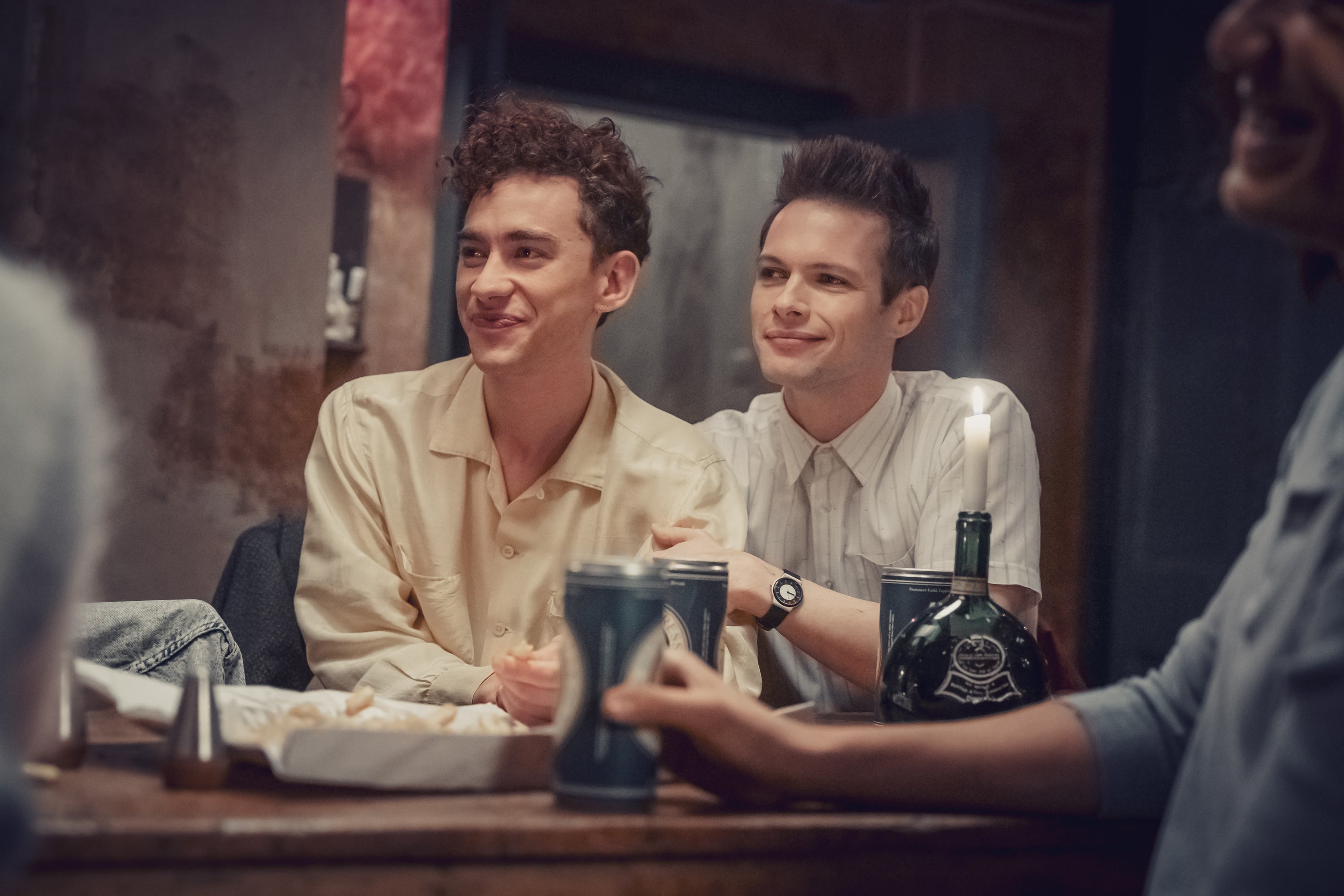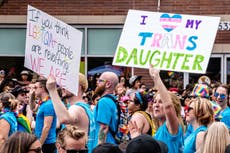Loss and anger raged in me after watching It’s a Sin – the stigma we faced in the 1980s is now being directed at trans people
Despite the sacrifices over the years, the pain, the decimation of people’s humanity, the same things are happening again, writes Michael Cashman


I watched the first episode of It’s a Sin and promised myself I wouldn’t gorge on it; it would be one episode a week. Hours later I sat in silence, the last episode ended, and loss and anger raged in me.
The brilliance of Russell T Davies’s writing means we quickly get to like his main characters and want to go on their journeys with them. We hope, empathise, ache, laugh and try not to think about the reality of the 1980s Aids/HIV pandemic.
But for me this isn’t a history lesson. My late husband, Paul Cottingham, and I lived through it and I have revisited it in my memoir, One of Them. I’ve remembered my feelings of disbelief as illness struck down one after another and we took comfort in the arms of friends – and, in some lucky instances, families – while others disappeared to die a quiet death. And this story cannot be told without recognising the legal discrimination that LGBT+ people lived with and continued to live with until the gradual drive for legal equality began with Tony Blair’s Labour government in 1997.
Davies threads a tightly woven tapestry of callous political opportunism (the anti-LGB law Section 28), defamation and the wanton misrepresentation of our lives. The headlines are still shocking, and they were from newspapers that should have known better but pandered to fear rather than enlightenment.
So why was I overcome with such deep anger? I realised that despite the sacrifices over the years, the pain, the decimation of people’s humanity, the denial of their integrity and their identity, the stigma that they had faced, the same things are happening again now. This time the target is not LGB people, but trans women, trans men, non-binary people and trans teenagers.
The fact that some of the instigators of these misrepresentations are LGB people, including some who lived through this period, angered me even more. It signifies that, for some, nothing has been learnt.
Trans people have become the individuals to discriminate against, to debase, and to portray as a “threat” – in the same way that previously they portrayed gay men, lesbians and bi women as a threat. It has gathered pace in the United Kingdom over the last three years because the government prevaricated over reform of the Gender Recognition Act and allowed myths to fill the vacuum created.
It gathered momentum with the Trump administration and US right-wing groups; the ban on trans people in the military and the repeated false depiction of trans people as sexual predators. Trump and his allies then moved on to target lesbian, gay and bisexual people’s rights as well-funded litigants beat a path to the courts.
The opponents of equality argue that we need to deny rights in order to protect others, using the age-old approach that we desperately need to protect children. Once again they use others, particularly children, as the emotional shield for the dogma of inequality (echoes of Section 28 forbidding schools to “promote” homosexuality).
The rights of LGBT+ pupils, indeed all pupils, to learn about same-sex relationships and gender identity are being misrepresented and undermined by some politicians, the media and by legal challenge. So too the rights of young trans adults and their parents to seek informed help and advice.
Trans people are under attack and so are the rights of all LGB people. Those campaigning for equality are portrayed as “woke” or fighting “cultural battles” by pundits and politicians. Intolerance and hate crimes are on the rise. News outlets repeat ludicrous “replacement” theories and the trans “threat” without substantial evidence, citing the exception as representative.
Britain was a world leader in the defence of minorities and equality before the law. Yet over the last year, in particular, I have noticed changing tone and tack as ministers start to redefine or ridicule equality, ditching or cutting back on previously promised provisions.
My anger against the injustices meted out to the trans community are manyfold. We should all have the imagination to stand in the shoes of the “other” and imagine their lives; their needs, hopes, their treatment and experiences. And so, if we wouldn’t want such discrimination and injustice to happen to us then how dare we allow it to happen to others?
The simple reality of equality is that we all live by the same laws, abide by the same rules, and enjoy the same equal protection of the law.
Let us sanction law breakers and those who transgress – from whichever part of society they come from – and let everyone else get on with their lives, becoming their true selves and living freely and openly in society.
So, I will continue working with others to refine legislative measures that will give equal protection to all people – including trans people. We have nothing to fear except history repeating itself, and intolerance feeding on one minority after another.
Michael Cashman is a founder of Stonewall and a member of the House of Lords
'One of Them: From Albert Square to Parliament Square’ by Michael Cashman is published by Bloomsbury and available in bookshops and online; the paperback edition is published on 18 February






Join our commenting forum
Join thought-provoking conversations, follow other Independent readers and see their replies